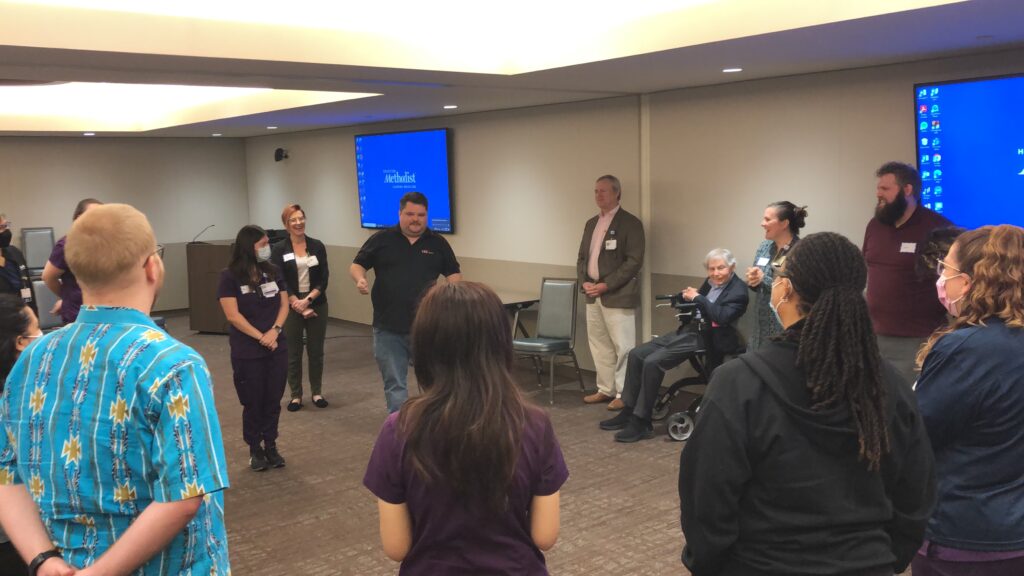In health care, empathy is key to effective, compassionate communication. Houston Methodist’s Dr. Gerald H. Dubin believes empathy can be strengthened through humor.
CPAM offers an improv class with ComedySportz Houston for Houston Methodist employees. Improv, short for improvisation, is a type of theatre in which people engage in acting or roleplay with no script and in which actions and words are created spontaneously.
These dynamic one-hour classes, titled The Art of Empathy, are interactive opportunities to use comedy and improv techniques to increase attendees’ ability to communicate empathetically. Dr. Dubin leads the classes alongside Benji Cooksey of ComedySportz Houston, focusing on the importance of empathy at every level of health care.

Drawing from his experiences as both a physician and a patient, Dr. Dubin says the key to empathy is understanding the patient’s perspective.
“You can’t help somebody in psychotherapy, medicine, or healing if you don’t understand how they perceive their problem and what would help them,” says Dr. Dubin.
The Art of Empathy aims to facilitate this understanding by having attendees roleplay various scenarios in which health care employees, whether they serve in clinical or administrative roles, interact with patients.
On November 30, Benji and Dr. Dubin led a class of approximately 25 employees through a series of improv activities, including a warm-up activity called Zip, three patient-employee interaction scenarios, and a period of reflection.
Zip, the warm-up activity, helped attendees become more comfortable with each other. Participants stood in a circle and took turns choosing other participants to continue the activity by saying “Zip,” “Zap,” or “Zop,” clapping and making direct eye contact. In this activity, mistakes are inevitable, but they are celebrated as a group.
“When we make mistakes, that’s a gift in improv,” Benji said to attendees. “We know things are gonna go wrong because we’re making it up on the spot. So instead of worrying about it, we’ll celebrate it. This is a safe place to land today—not just to try things out, but also to get things wrong.”
This theme was demonstrated through roleplaying scenarios. The first scenario showcased a patient speaking to a doctor who “got it wrong” by demonstrating unempathetic responses to the patient’s frustration. Participants who volunteered to roleplay received cards with information about their characters and suggestions for roleplaying the scenario, but Benji encouraged people to draw on their own experiences if they wanted to.
Attendees reflected on the experience of seeing a doctor behave unempathetically toward a patient. Then the scenario was repeated with different actors, this time showing how empathy might look and sound in that situation.
At the end of the class, attendees reflected on what they liked and what they learned from the class. Several people shared that they enjoyed finding the humor in these real-life experiences, and many said they learned that there are different perspectives in every situation.
“There’s power in being curious, not judgmental,” one attendee shared.
CPAM plans to continue offering The Art of Empathy classes to further encourage empathetic communication. Every class looks different depending on the people who attend it and the perspectives they bring.
There isn’t just one way to promote empathy, Dr. Dubin says. “This is an art form.”